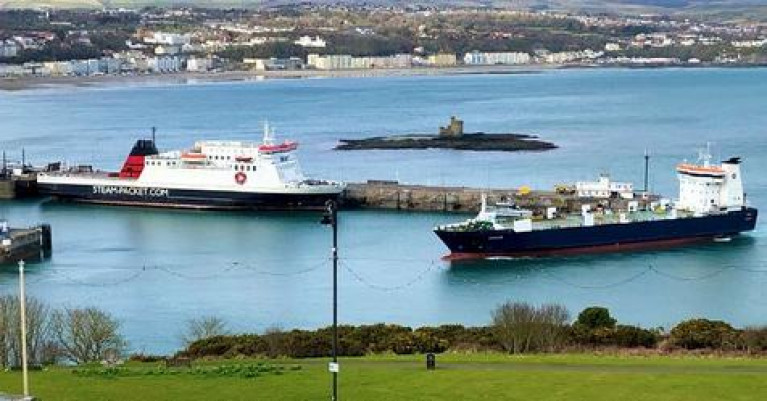Displaying items by tag: Extra Capacity
Isle of Man Freight Ferry Departs Heysham after Ropax Had to Leave Early
The Isle of Man Steam Packet Company had to add an extra freight sailing after silt caused issues for the ferry Ben-my-Chree at Heysham.
The ferry operator according to Manx Radio, had to change its sailing times over the last couple of days because of problems at the Lancashire port.
The early departure overnight meant very limited freight was able to make the crossing.
As a result, the Arrow was brought into service and left Heysham at 4am with the freight, including the newspapers, which are expected into shops around three hours later than usual.
Extra Freight Capacity As Stena Set to Introduce '4-Runner' Class to Belfast–Liverpool Service
#FerryNews - Responding to growing market-led demand, Stena Line is planning to upweight its freight capacity on the busy Belfast – Liverpool (Birkenhead) route this month.
The operator will initially deploy the 3,000 lane metre Stena Forerunner, before replacing it with a similar ship early in 2019. At which point the Stena Forerunner will return to service in the North Sea, where Afloat adds a half sister Stena Carrier is currently operating, having called earlier this summer to Dun Laoghaire Harbour.
The planned deployment Afloat adds follows another freightferry Stena Scotia that has already transferred to the Irish Sea but onto the Belfast-Heysham route.
Stena Line’s CEO Niclas Mårtensson said: “Demand for freight capacity from Belfast continues to increase and we believe it is vital that Stena Line provides the necessary capacity and frequency to enable that expansion to flourish. Stena Line will continue to operate seven vessels on its three routes to and from Belfast serving Cairnryan, Heysham and Liverpool and the introduction of the Stena Forerunner will provide us with greater capacity and flexibility to service market demand.
Paul Grant, Stena Line Trade Director commented: “This latest investment by Stena Line yet again highlights our commitment to the freight market. This year we’re experiencing strong growth of 6% on our Belfast – Liverpool route. Future plans for the introduction of two new build ferries on this service during spring 2020 and early 2021, combine to demonstrate a significant long-term commitment to the region by Stena Line. Belfast is now firmly established as the preferred hub for Northern Ireland freight. Stena Line’s unique ability to offer reliability, frequency and choice of routes for the accompanied and unaccompanied segments from a single location is a big advantage for the freight industry.”
When Stena Line initially deploys the 210-trailer unit Stena Forerunner on the Belfast-Liverpool route it will increase weekly freight capacity on the service by almost 10%. They will replace it with a similar ship early in 2019 at which point the Stena Forerunner will return to service in the North Sea (where Afloat adds this ship is at present serving the route to Rotterdam).
Björn Petrusson, Stena Line’s Chief Commercial Officer, North Sea and Irish Sea commented: “Stena Line is actively seeking relief tonnage for the North Sea during this period as we are fully aware that a reduction in the number of ships, though temporary, is not the optimal solution for our customers there.”
























































